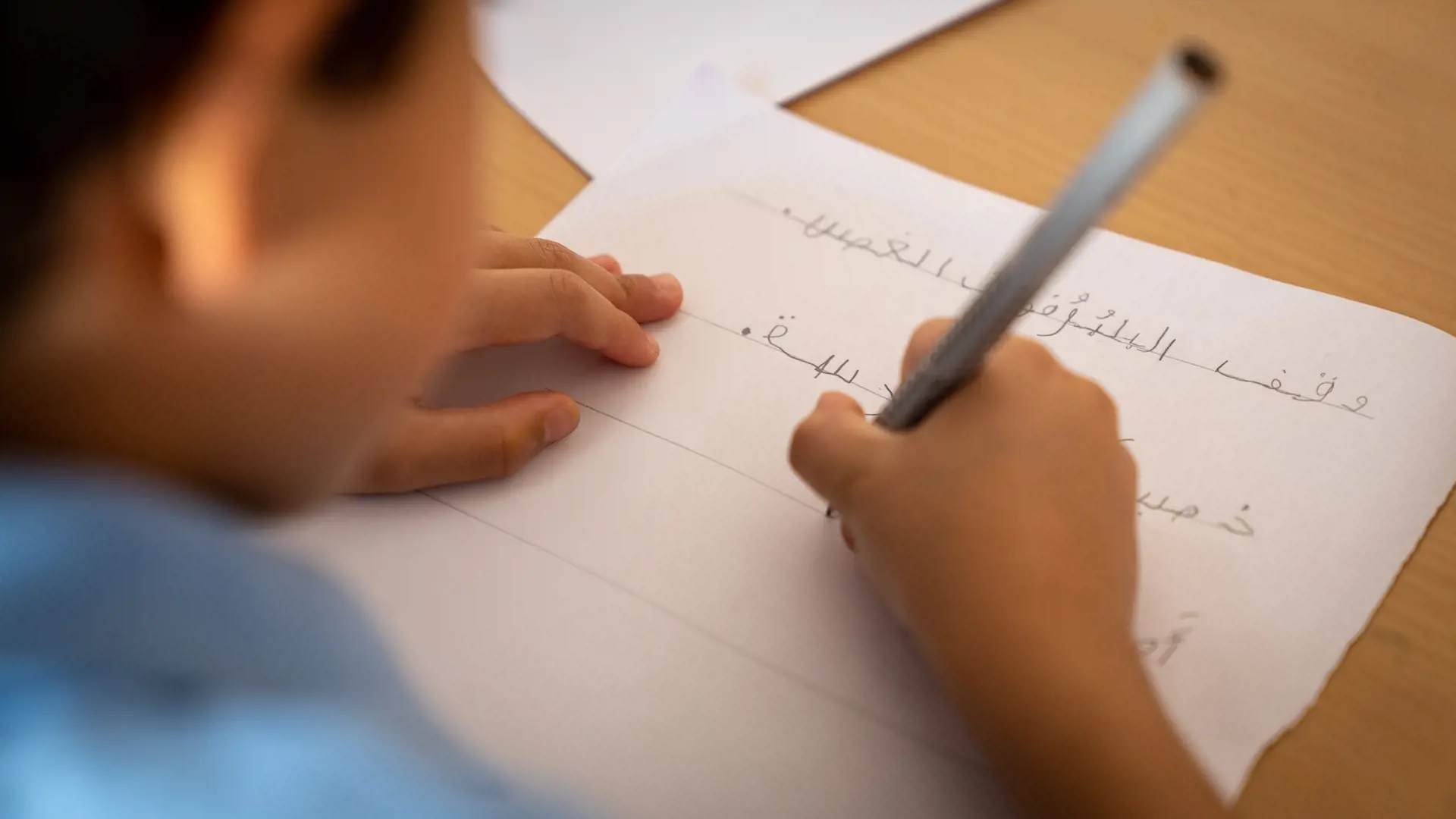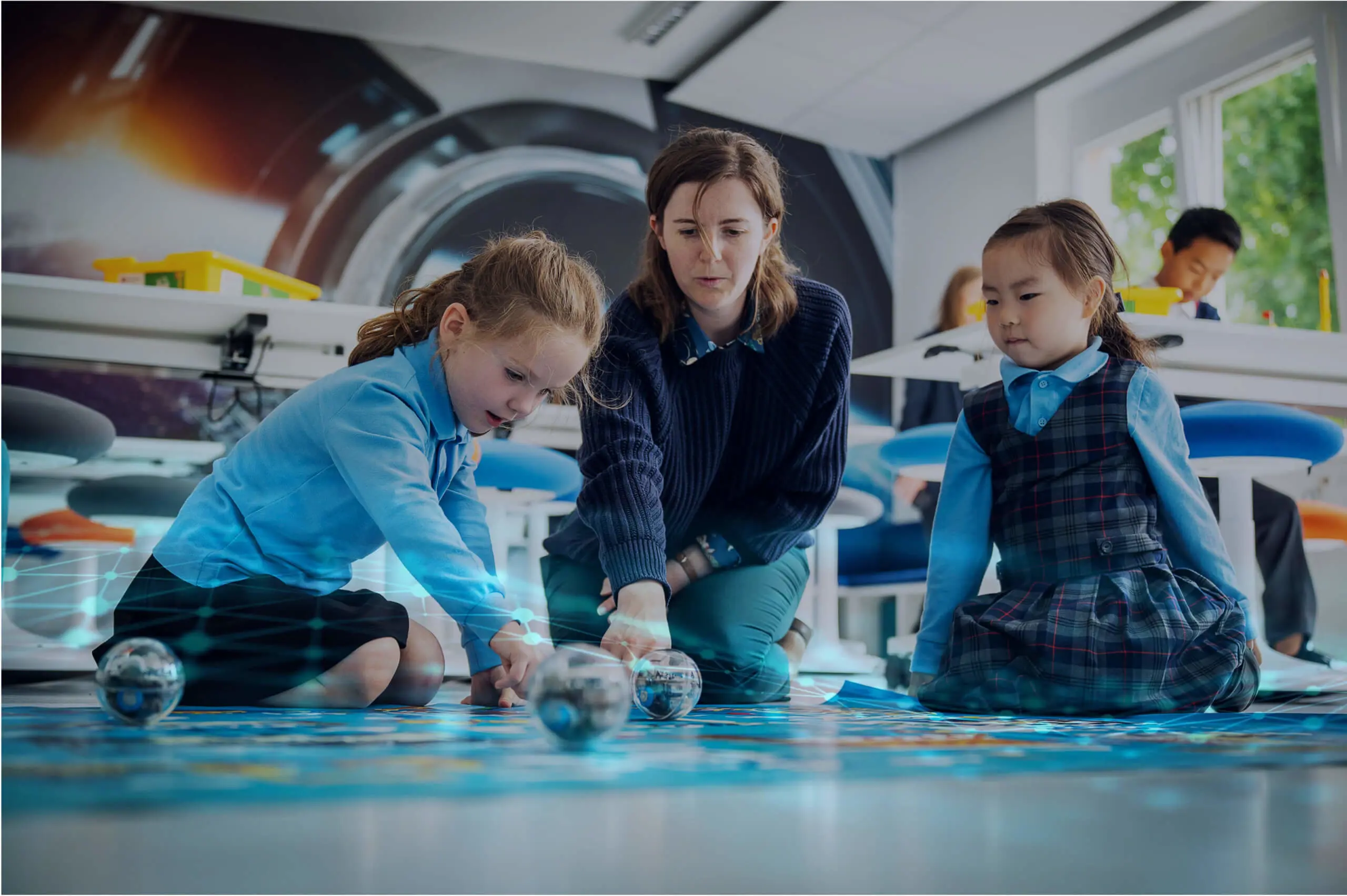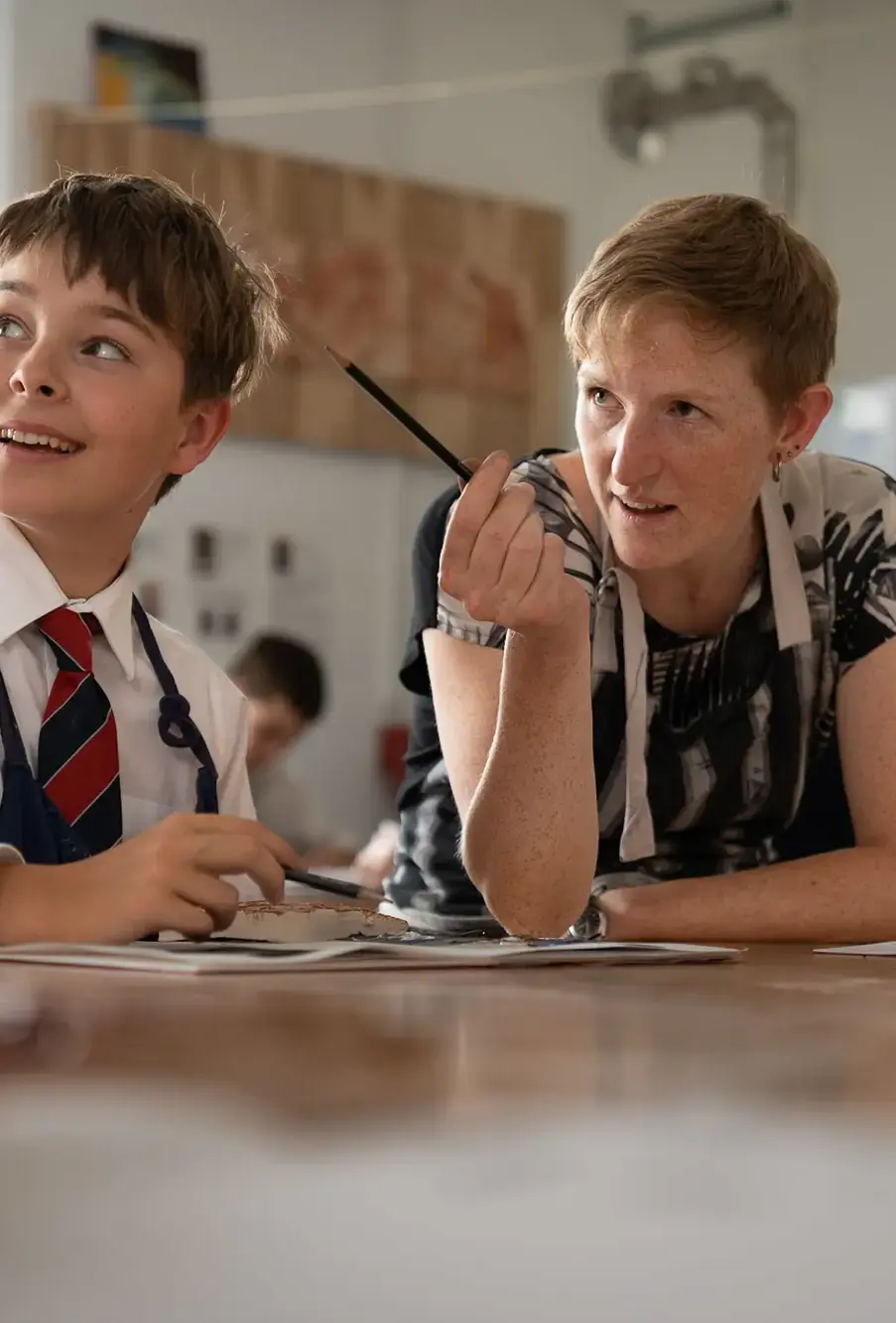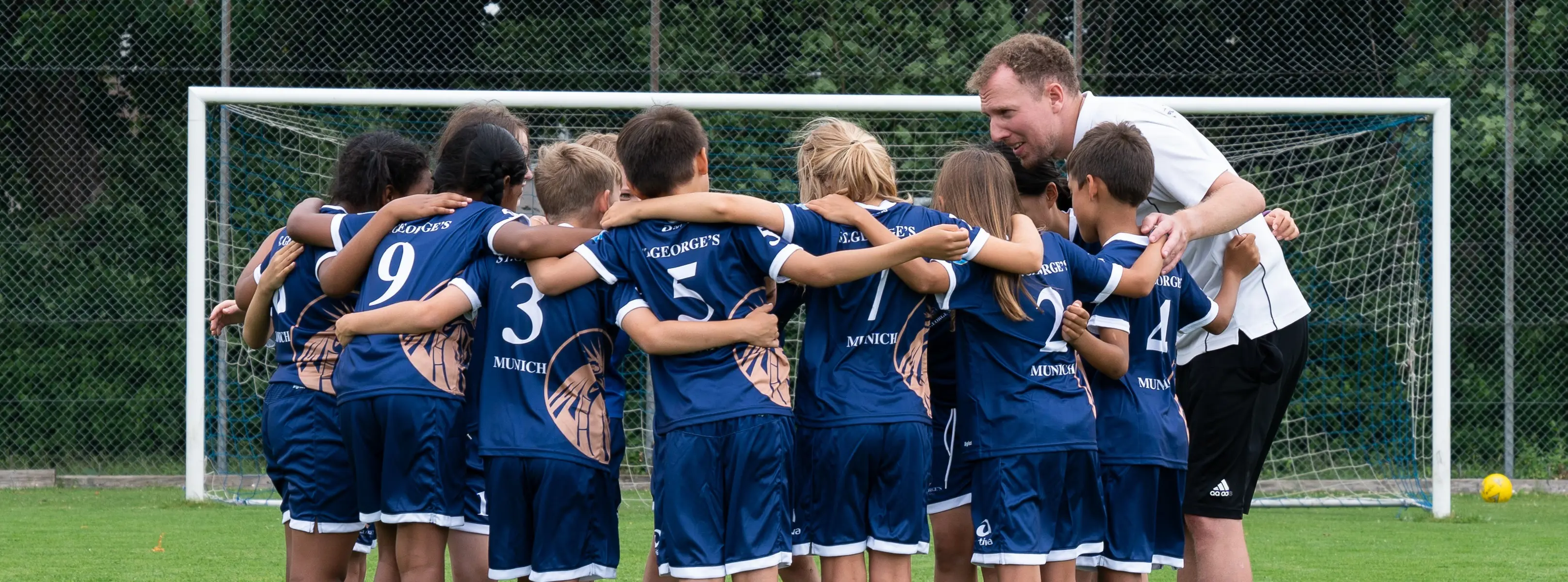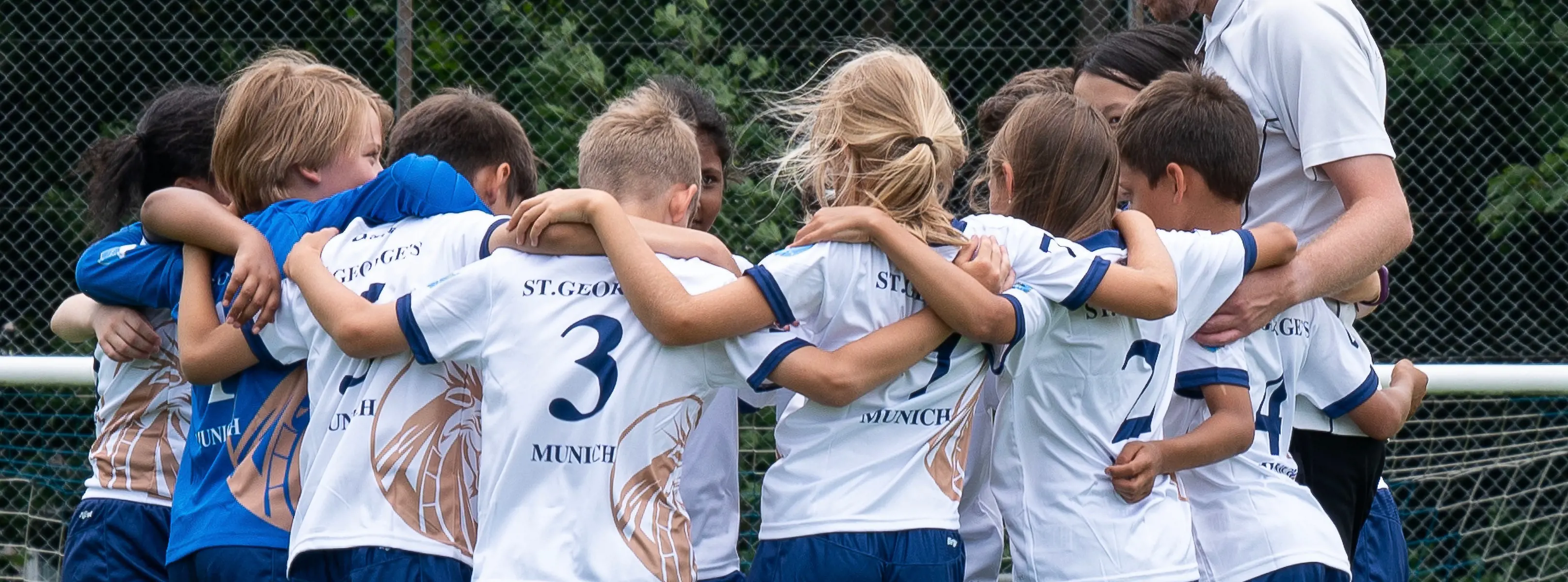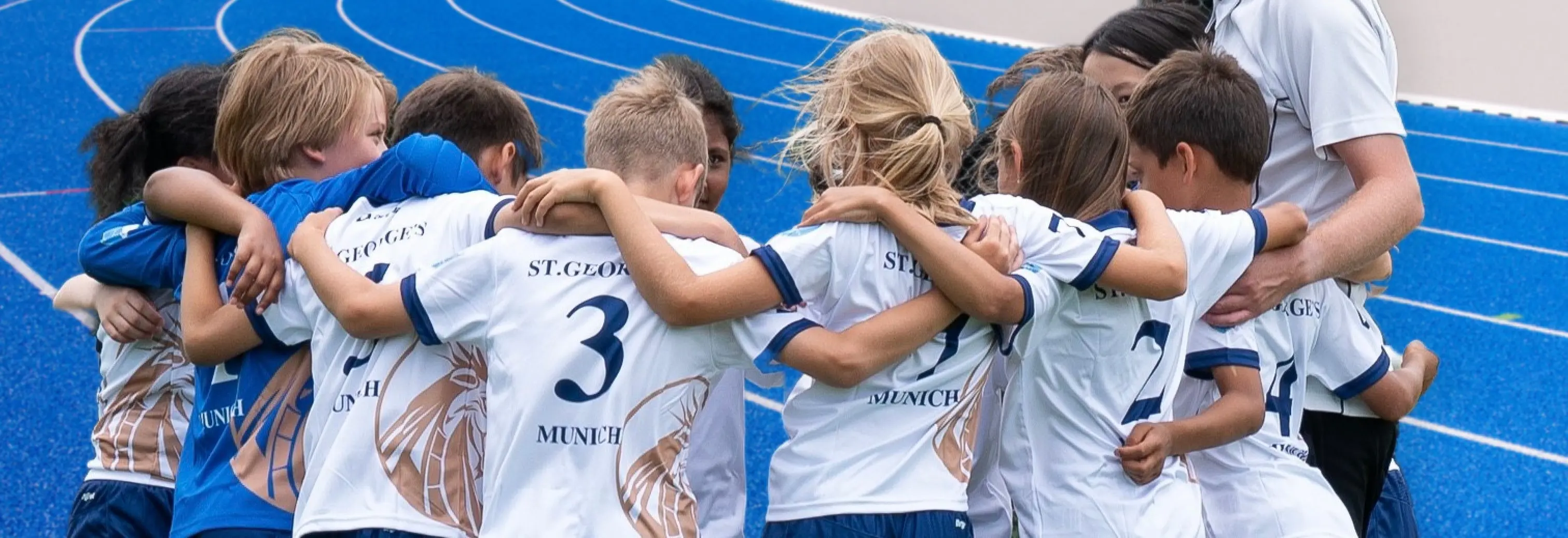AI in education: Human-centred innovation.
Author: Russell Johnston, Lewis Crowton, John Hullock | Author Title: Heads of School | Publication Date: October 2025
At St. George’s School, preparing students for the future is not just a vision – it’s our responsibility. Through innovative teaching, digital learning tools, and an ethical approach to AI in education, we help young people develop creativity, critical thinking, and future-ready skills — so learning keeps pace with the world. Our goal is to ensure that education evolves alongside society — remaining relevant, human-centred, and guided by purpose.
Our commitment to excellence extends beyond academic results. We nurture adaptable, curious, and ethically aware learners who can lead with confidence in an increasingly technology-driven society. As artificial intelligence continues to influence how we live and learn, we believe education must evolve with both courage and conscience.
AI is part of that evolution — not as a replacement for human insight, but as a catalyst for it. The question is no longer if AI belongs in schools, but how it can be used responsibly and meaningfully to enhance the human experience of learning.
AI in school life
Artificial intelligence is already woven into daily school life — shaping how students learn and how teachers teach. From adaptive learning platforms that adjust to each learner’s pace, to analytics that track progress and wellbeing, these tools make education more responsive and efficient. Administrative automation frees teachers to focus on what matters most: personalised, human-centred teaching.
Beyond these practical uses, AI is increasingly becoming a learning companion — giving timely feedback and personalised challenges that nurture independence and curiosity. Used thoughtfully, it extends learning beyond the classroom and helps students build the self-directed skills they need for the future.
Yet AI can never replace the trust, empathy, and intuition that define great teaching. At its best, it sharpens insight and efficiency — while people bring meaning, connection, and care.
Human-centred AI in education
At St. George’s, learning is a shared journey that balances curiosity, independence, and meaningful guidance. Our focus on heutagogy — learning driven by the learner — empowers students to take ownership of their education and think critically about the world around them.
When used wisely, AI acts as a learning partner, offering real-time feedback, personalised pathways, and light scaffolding that strengthens critical thinking and creativity.
This comes to life in classrooms across the school. In a recent Year 10 STEM project, students designed an eco-efficient school building using AI-assisted design tools such as SketchUp with Sefaira. The software helped them model how design choices — from energy use and lighting to materials and insulation — influenced sustainability. Guided by their teacher, they explored the ethical and environmental implications of their decisions.
With AI enabling real-time visualisation and faster experimentation, abstract concepts became interactive and meaningful — giving students a sense of agency and purpose in their learning.
This is what we mean by human-centred innovation: technology that deepens understanding, amplifies creativity, and strengthens the human connection at the heart of learning.
Each classroom experience informs a larger mission — to lead innovation with intention and impact. We see technology as a bridge between human potential and the possibilities of tomorrow: a catalyst for creativity, equity, and global connection. Used with integrity, it not only deepens learning but magnifies what education can achieve for individuals and society alike.
Our AI approach
As a school, our role is to engage critically with the tools available and to lead innovation with integrity and insight.
We approach AI not as a trend to follow, but as an opportunity to strengthen teaching, deepen learning, and uphold the human values that define excellent education. As we explore how AI can be meaningfully and responsibly integrated into our learning environment, we ask:
- How do we prepare students to use AI responsibly - as creators, not just consumers?
- How can AI enhance learning without displacing the teacher’s role?
- What does ethical, value-led use of AI look like in education?
- How do we ensure that technology serves human development - not the other way around?
- How do we ensure equity of access to AI tools?
- How do we protect data privacy, academic honesty, and the authenticity of effort?
Guidance from the UK Department for Education, alongside best practices from COBIS, ISTE, and the IBO, informs our approach — yet local leadership and context remain essential.
At St. George’s school, we are taking a deliberate approach:
- Integrating AI where it adds clear value
- Training staff to use it with confidence and caution
- Supporting students in developing both technical fluency and critical reflection
- Ensuring parents are part of the conversation
Human skills in a digital world
AI can enhance how knowledge is shared — but meaning, motivation, empathy, and adaptability still come from people. The classrooms of the future may be more data-informed and personalised, but they must remain deeply human.
At St. George’s, AI is not a replacement for great teaching and leadership, but a thoughtful companion within our commitment to purposeful innovation. Guided by values and grounded in care, we ensure that technology serves the people at the heart of education: our students.
In a world increasingly shaped by algorithms, it is our relationships, our curiosity, and our judgement that continue to define what great education truly looks like.
AI, technology and society
Technology doesn’t only transform how we learn — it reshapes how we live together. Artificial intelligence influences economies, relationships, and even the information we trust. As educators, we must prepare students not just to use technology effectively, but to understand its social, ethical, and environmental impact.
Innovation is never neutral. Every digital advance carries choices and consequences. By learning to question, analyse, and act responsibly, our students gain the confidence to use technology to build connection — not division — and to shape progress with purpose.
Future-readiness beyond the classroom
As we integrate AI thoughtfully into our educational environment, our focus extends beyond immediate classroom outcomes. The world our students are entering demands more than subject knowledge or technical fluency; it calls for curiosity, adaptability, and ethical awareness.
By engaging with AI-powered learning in purposeful ways, we help learners navigate an increasingly complex and interconnected world — cultivating the ability to question digital outputs, recognise bias, collaborate across cultures, and respond creatively to new challenges.
At St. George’s, our commitment is to ensure that students are not only equipped to use technology, but to shape it, critique it, and lead with it — not just as future professionals, but as thoughtful global citizens.

